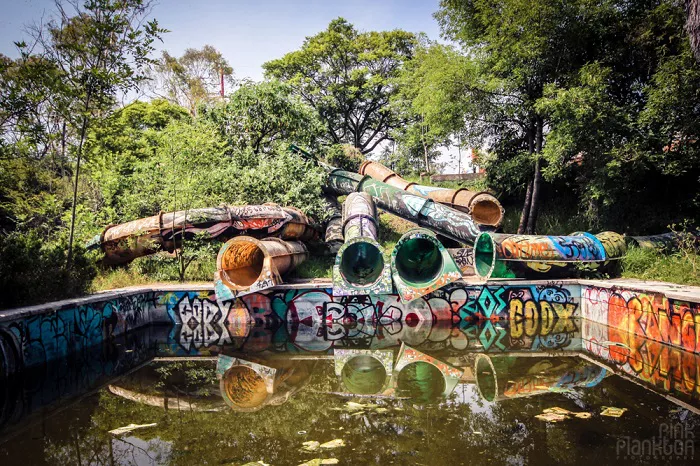The future of France’s last two captive orcas hangs in the balance as they remain stranded in a crumbling marine park with no permanent refuge in sight. Wikie, aged 23, and her 11-year-old son Keijo have been left behind at the now-defunct Marineland Antibes in southern France, where they swim listlessly in a deteriorating tank amid mounting concerns for their welfare.
Born in captivity, the mother-and-son pair lack the skills needed to survive in the wild. Since the park’s closure in January 2025, the orcas have been confined to a facility that is rapidly falling into disrepair, with green algae overtaking the structures and minimal staff remaining to provide basic care.
In a nearby tank, 12 bottlenose dolphins also remain stranded. While their basic needs are met under legal care obligations, experts warn that the lack of mental stimulation — crucial for intelligent, social species such as orcas — is having a detrimental impact.
Once star performers for Marineland visitors, Wikie and Keijo are now under the legal guardianship of the park, which is urgently seeking a suitable relocation site. “Marineland reaffirms the extreme urgency of transferring the animals to an operational destination,” park officials stated. Caretakers have stressed that the orcas must be moved immediately to ensure their well-being.
Marketa Schusterova, co-founder of marine conservation group Tidebreakers, emphasized the dire conditions. Speaking to the Mirror, she recounted the recent tragedies endured by Wikie, including the deaths of two other offspring — Moana, who died unexpectedly at age 12 in 2023, and Inouk, who fatally ingested a piece of metal inside his enclosure.
“We know from reviewing footage that the tank is causing a hazard,” Schusterova said. “It’s not being cleaned, it’s falling apart. It’s a danger to the orcas every single day.”
With water quality deteriorating, advocates fear the animals could develop severe health issues or face euthanasia before a sanctuary becomes available. Orcas in the wild can live into their 70s or 80s, making the current situation for the young Keijo and his mother particularly distressing.
Efforts to relocate the orcas have repeatedly stalled. A proposal to transfer them to Loro Parque in Tenerife was vetoed by an independent scientific panel, which found that the proposed enclosure failed to meet minimum requirements for volume, depth, and surface area. Another potential move to a Japanese facility was also dismissed.
French Ecology Minister Agnès Pannier-Runacher has publicly voiced support for relocating the orcas to a European sanctuary, but acknowledged in February that a suitable location has yet to be secured.
Some campaigners have backed a proposed site in Nova Scotia, Canada, led by the Whale Sanctuary Project (WSP). The site features a vast coastal bay enclosed by 1,600 meters of escape-proof nets, offering what supporters call the only remaining option for the orcas to live in a more natural, expansive environment.
However, Tidebreakers expressed skepticism about the project’s readiness. “We’re afraid the orcas will die before WSP has even got a stick in the ground,” said Schusterova, who advocates for constructing temporary, custom-designed holding tanks as an interim solution until a permanent sanctuary is complete.
“Quite simply, if Wikie and Keijo are left in these conditions, they’re going to get sick and die,” she warned.
WSP CEO Charles Vinick brings experience from a previous sanctuary effort for Keiko, the orca famed for starring in the 1993 film Free Willy. Captured off the coast of Iceland in 1979, Keiko was sold to various marine parks and eventually cast in the Hollywood film. During production, Keiko’s health declined dramatically, prompting a massive public campaign for his release.
Warner Brothers eventually funded Keiko’s transfer to an aquarium in Oregon, where caretakers attempted to reduce his dependence on humans. Although he was eventually released into the wild in 2002 and joined a pod, he died of pneumonia in 2003 after contracting an infection.
As discussions continue, advocates and conservationists urge swift action to ensure that Wikie and Keijo do not share a similar fate. With time running out, the pressure to find a viable, immediate solution has never been greater.

